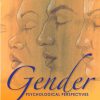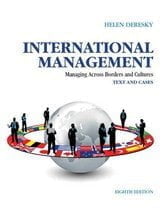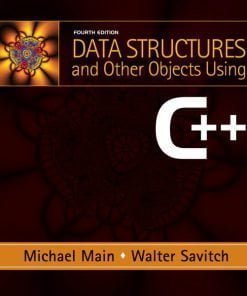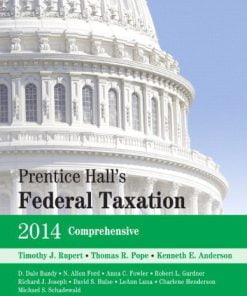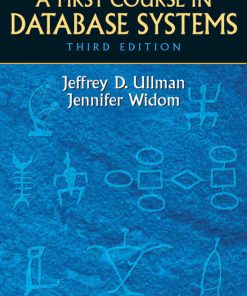Solution Manual for Critical Thinking The Art of Argument, 2nd Edition
$35.00 Original price was: $35.00.$26.50Current price is: $26.50.
Solution Manual for Critical Thinking The Art of Argument, 2nd Edition
Instant download Solution Manual for Critical Thinking The Art of Argument, 2nd Edition pdf docx epub after payment.
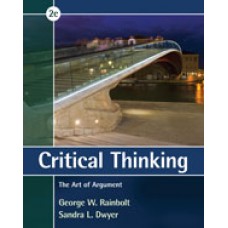
Product details:
- ISBN-10 : 1285197194
- ISBN-13 : 978-1285197197
- Author: George W. Rainbolt; Sandra L. Dwyer
With a complete, approachable presentation, CRITICAL THINKING: THE ART OF ARGUMENT, 2nd Edition, is an accessible yet rigorous introduction to critical thinking. The text emphasizes immediate application of critical-thinking skills to everyday life. The relevance of these skills is shown throughout by highlighting the advantages of basing decisions on a thoughtful understanding of arguments and presenting the overarching commonalities across arguments. With its conversational writing style and carefully selected examples, the book employs a consistent and unified treatment of logical form and an innovative semiformal method of standardizing arguments that illustrates the concept of logical form while maintaining a visible connection to ordinary speech. Without sacrificing accuracy or detail, the authors have clearly presented the material with appropriate study tools and exercises that emphasize application rather than memorization.
Table of contents:
Preface. Introduction: How to Use This Book.
1. Critical Thinking and Arguments. What Is Critical Thinking? What Is an Argument? Why Think Critically? Identifying Arguments. Things That Are Not Arguments. Putting Arguments into Standard Form. Diagramming Arguments. Chapter Summary. Guide: Identifying and Standardizing Arguments.
2. What Makes a Good Argument? The Two Characteristics of a Good Argument. True Premises. Proper Form. Relevance. Arguing about Arguments. Some Improper Forms: Fallacies of Relevance. Chapter Summary. Argument Forms Studied in the Chapter. Guide: Identifying, Standardizing, and Evaluating Arguments.
3. Premises and Conclusions. Empirical Premises. Definitional Premises. Premises and Experts. Conclusions. Chapter Summary.
4. Language. Identifying Definitions. Evaluating Definitions. Language and Clarity. Language and Emotion. Chapter Summary. Argument Forms Studied in the Chapter.
5. Propositional Arguments. Identifying Propositional Statements. Evaluating Propositional Arguments. Chapter Summary. Argument Forms Studied in the Chapter. Guide: Identifying, Standardizing, and Evaluating Propositional Arguments.
6. Categorical Arguments. Identifying Categorical Statements. Evaluating Categorical Arguments with One Premise. Evaluating Categorical Arguments with Two Premises. Chapter Summary. Argument Forms Studied in the Chapter. Guide: Identifying, Standardizing, and Evaluating Categorical Arguments.
7. Analogical Arguments. Identifying Analogical Arguments. Evaluating Analogical Arguments. Chapter Summary. Argument Forms Studied in the Chapter. Guide: Identifying, Standardizing, and Evaluating Analogical Arguments.
8. Statistical Arguments. Descriptive Statistics. Identifying Statistical Arguments. Evaluating Statistical Arguments. Statistical Fallacies. Chapter Summary. Argument Forms Studied in the Chapter. Guide: Identifying, Standardizing, and Evaluating Statistical Arguments.
9. Causal Arguments. The Many Meanings of “Cause.” Identifying Causal Arguments. Evaluating Causal Arguments. The Scientific Method. Chapter Summary. Argument Forms Studied in the Chapter. Guide: Identifying, Standardizing, and Evaluating Causal Arguments.
10. Moral Arguments. Identifying Moral Arguments. The Nature of Moral Arguments. Evaluating Moral Arguments. Moral Conflict. A Final Thought. Chapter Summary. Argument Forms Studied in the Chapter. Guide: Identifying, Standardizing, and Evaluating Moral Arguments.
People also search:
Critical Thinking The Art of Argument, 2nd Edition
Critical Thinking The Art of Argument, 2nd Edition pdf
Critical Thinking The Art of Argument
what is the concept of argument in critical thinking
types of arguments in critical thinking
what is an argument in critical thinking
Related products
Solution Manual
International Accounting Doupnik 4th Edition Solutions Manual
Solution Manual
Solution Manual
Solution Manual
Solution Manual for Data Structures and Other Objects Using C++, 4/E Michael Main, Walter Savitch
Solution Manual
Prentice Hall’s Federal Taxation 2014 Comprehensive Rupert 27th Edition Solutions Manual
Solution Manual
Solution Manual



